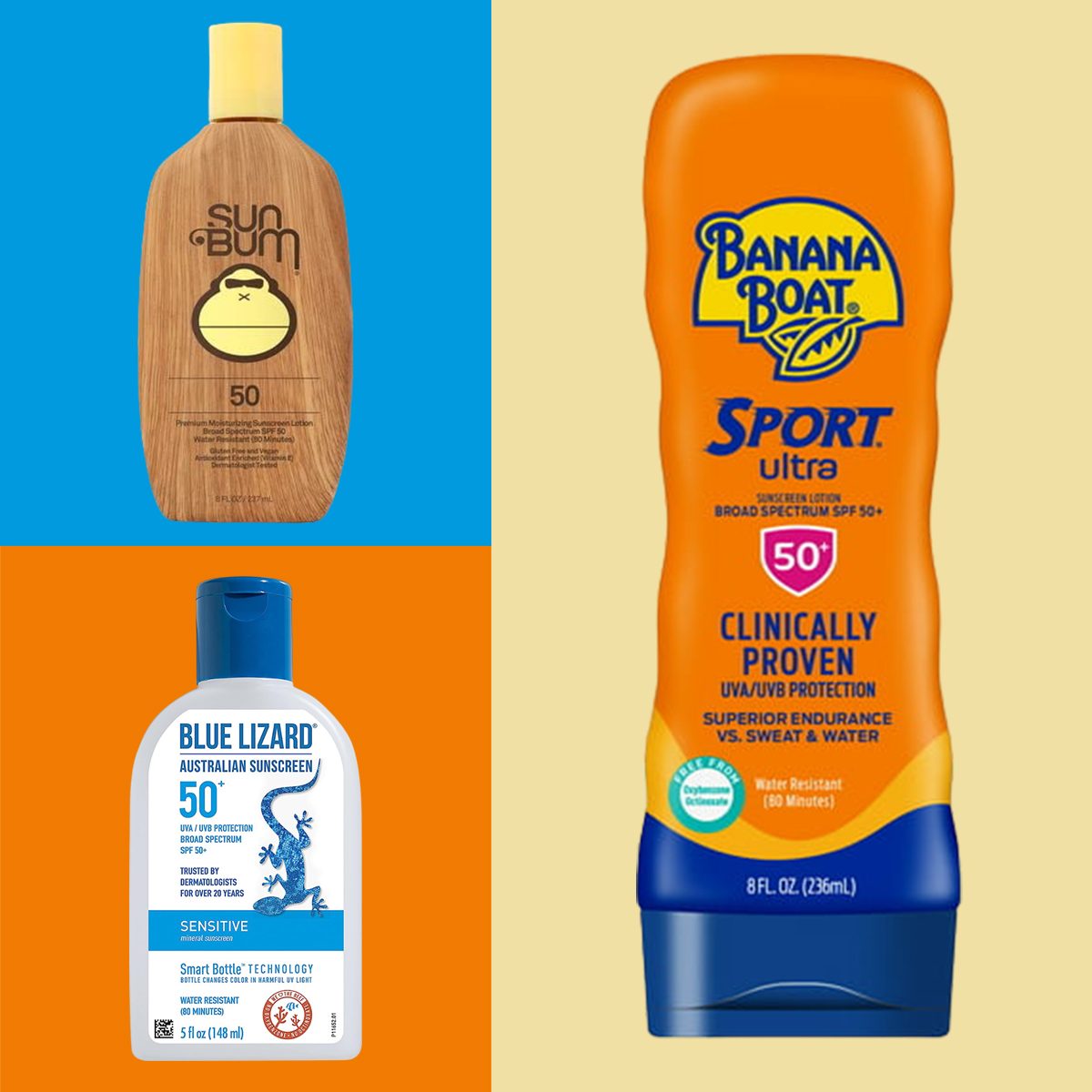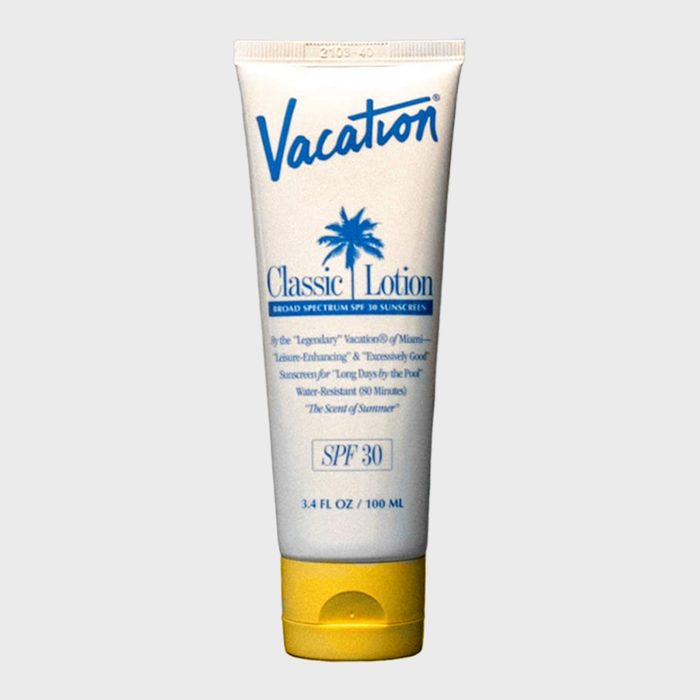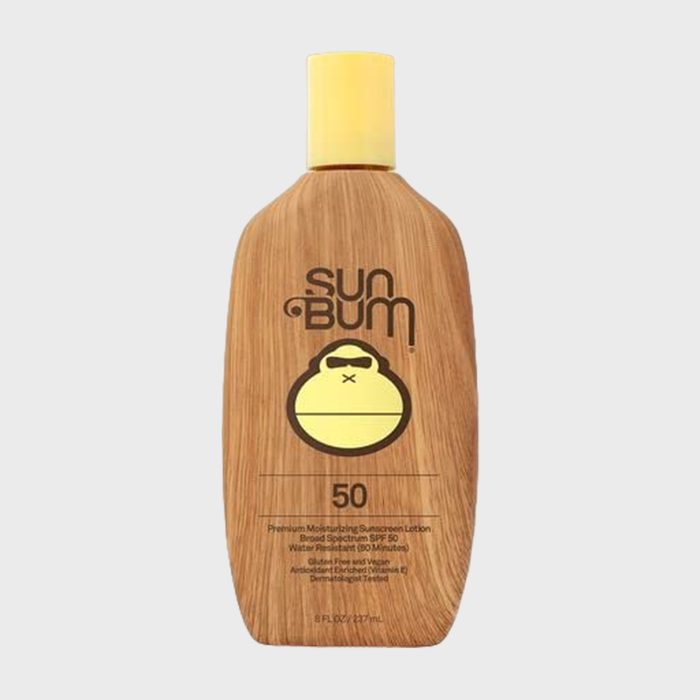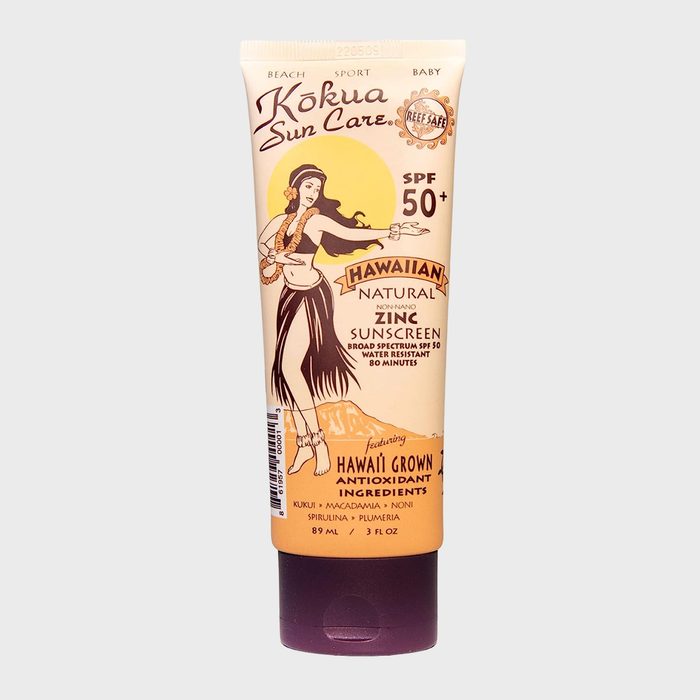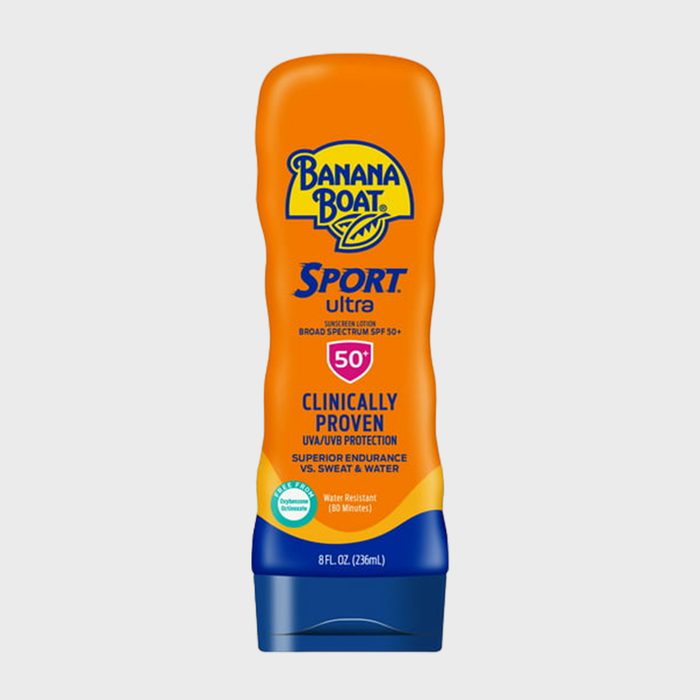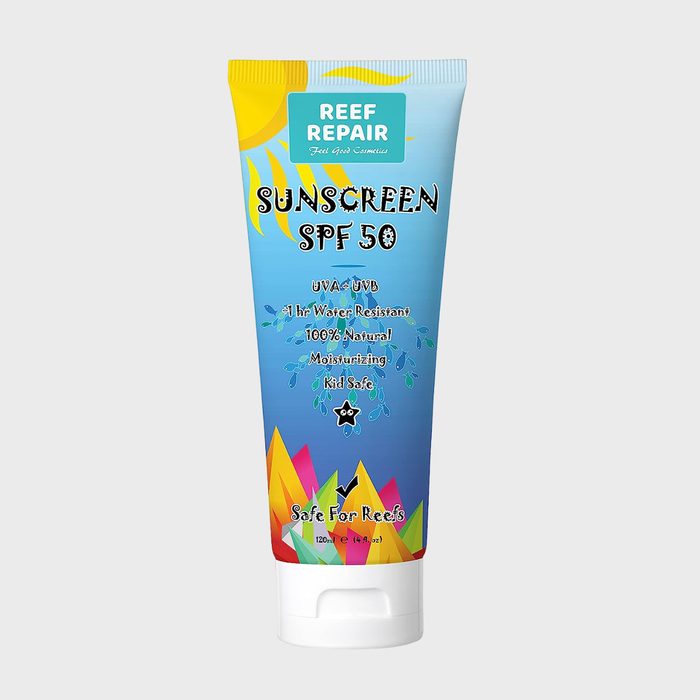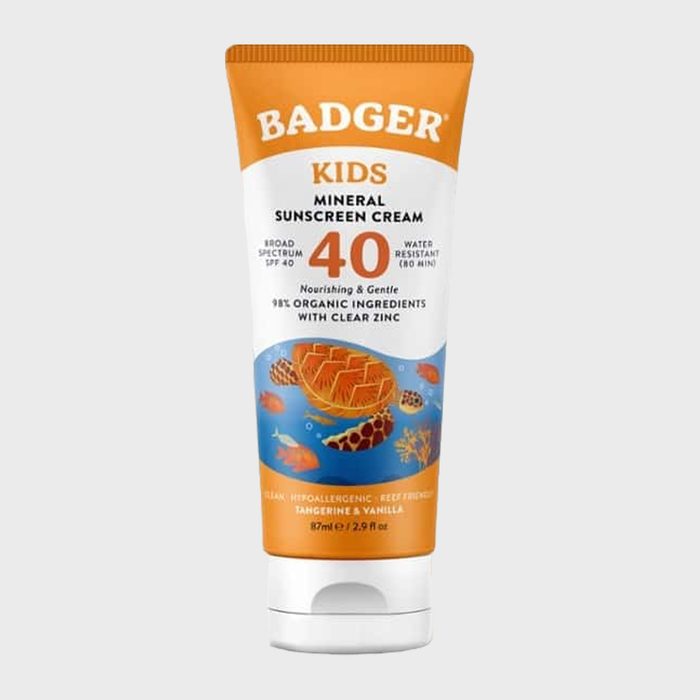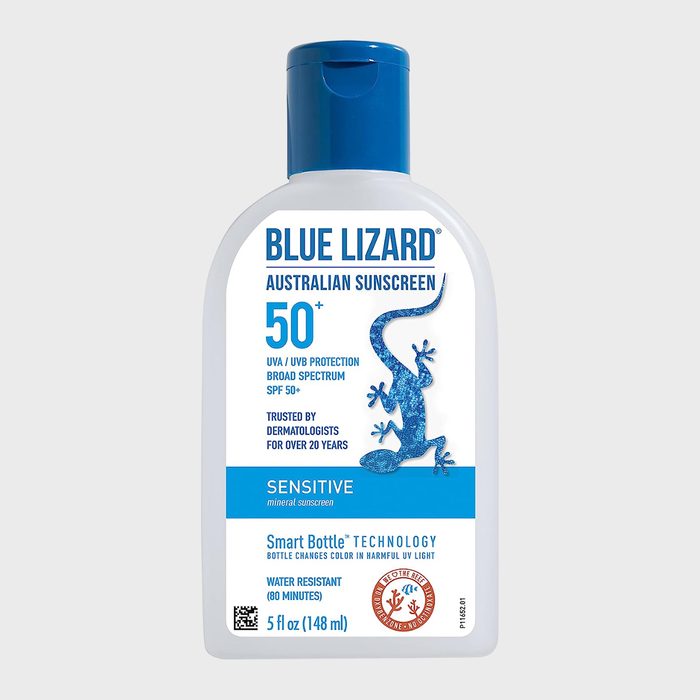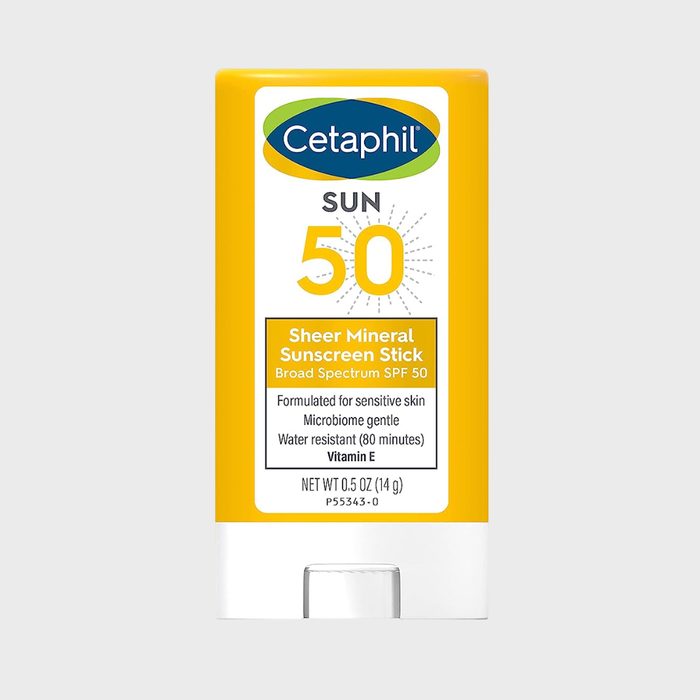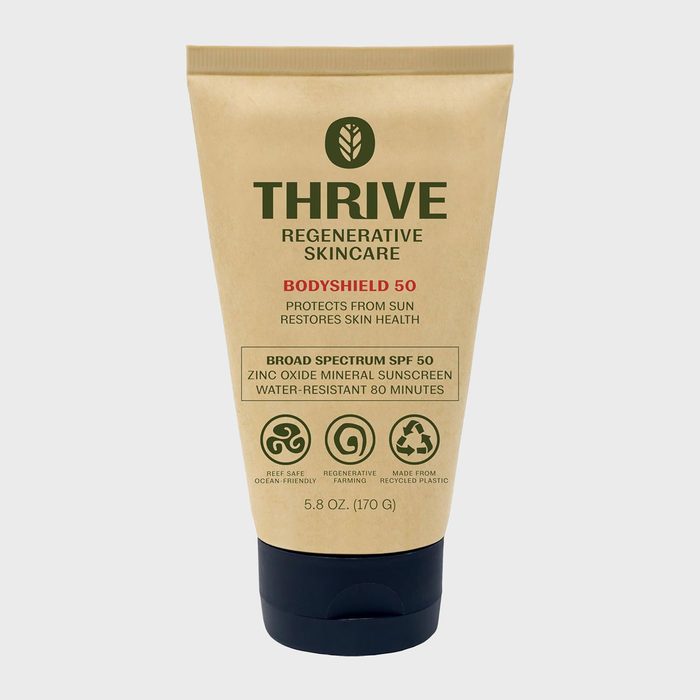The world’s best-smelling sunscreen, Vacation holds on to its signature summer scent while updating its high-performance protective formula to comply with the Hawaii Reef Act 104. Not only is Classic Lotion one of the best reef safe sunscreens but it’s also packaged using recycled materials. The lightweight lotion has an invisible finish that’s gentle on your skin.
Keeping kids protected from the sun as they dash in and out of the waves can be stress-inducing for any parent. That’s why we love the efficiency and ease of this Hello Bello spray. Carefully formulated to be both gentle on the environment and sensitive skin, the continuous spray dispenser takes the work out of reapplying. It’s one of the best reef safe sunscreens for any family beach day.
Free from oxybenzone, octinoxate and parabens, Sun Bum is the go-to sunscreen for beach lovers everywhere. If you find that the combination of sweat-inducing heat and sun protection leaves you with skin breakouts, this Sun Bum lotion is oil-free and non-comedogenic meaning it won’t clog your pores or disrupt your natural oil balance. Add in a light summer scent and it is easy to see why almost 30,000 shoppers on Amazon continue to trust the brand.
Whether you surf, kayak or paddle board, breaking a sweat while in the water means you may need a little extra protection. This sheer Kokua sunscreen doesn’t contain chemicals that are harmful to reefs and marine life. It’ll help keep you protected while you enjoy a fun-filled day at the beach.
Founded by a Miami lifeguard, Banana Boat has provided sun protection to beach lovers for almost 50 years. Its sunscreens are now reef friendly for more fun in the sun without worrying about sunburns. The sweat-resistant formula won’t run into your eyes and has superior endurance against water. At an affordable price, this Sport Ultra sunscreen has a breathable lightweight texture that won’t leave you looking greasy.
When scuba diving, swimming, snorkeling or visiting coral reefs, environmentally friendly sunscreen is now required in Hawaii, Mexico, Maldives, Belize, Florida and the Great Barrier Reef. This biodegradable sunscreen ensures no damage to ocean life, while also providing optimum sun protection to wearers. An added bonus is that it contains moisturizing properties like red raspberry seed and coconut oil to hydrate skin.
While this Badger mineral sunscreen is specially designed for children, it’s also hypoallergenic and works well for anyone with sensitive skin. Made in a factory powered by solar energy, the waterless formula contains vitamin E to nourish skin. Reef-friendly and cruelty-free, the formula has organic tangerine and vanilla for a fresh and fruity scent. Don’t forget about these hand creams with SPF!
This sunscreen from Australian brand Blue Lizard ticks all the boxes for those looking for reef-friendly, high protection that won’t cause irritation. The fragrance-free formula doesn’t sting your eyes or cause contact lenses to itch. The lotion also absorbs quickly and leaves no white cast, making it an all-round winner from the Aussies. Here are some sunscreens for dark skin that also won’t leave a white cast.
The Cetaphil sunscreen stick makes for a no-mess application with a sheer finish. Keep it sand-free this summer with an easy-glide formula that’s also dermatologist recommended. The compact-sized and nondrip sunscreen stick means it also works great for those delicate areas like ear lobes, lips and eyes.
The non-greasy, chemical-free Thrive Reef Safe Sunscreen comes with all the benefits of SPF50 without harming the world’s oceans. Not only does this eco-friendly sunscreen protect from the sun, it’s also packed with antioxidants that prevent redness and repair the skin as it is exposed to UVA and UVB rays. However, this is not meant to be used as a face sunscreen.
Why you should trust us
I’ve been a beauty and fashion journalist for 15 years, writing for various publications, including InStyle, Byrdie and more. I have a Diploma in Makeup Artistry from the LA Academy of Creative Arts, and I’ve covered everything from the best sunscreen sticks to the best smudge-proof setting sprays.
For this guide, I consulted Julie Andersen, the Global Director of Brand and PR at Professional Association of Diving Instructors (PADI). She has over 25 years of experience working to build ocean-saving initiatives and founded four marine conservation nonprofits to fuel positive change for the future of oceans, sharks and society.
We also consulted Dr. T. N. Rekha Singh, a certified dermatologist, trainer and mentor at Oliva Skin and Hair Clinic. Dr. Singh helps train mentees in anti-aging and hair specialties.
Alexandra Mantella, Content Updates Editor at Reader’s Digest, updated and contributed research to this piece. She has over five years of experience in product testing, research and commerce writing. Previously, she served as a commerce content update editor at Bob Vila.
FAQs
Do you really need reef-safe sunscreen?
According to Dr. Singh, reef-safe sunscreen is necessary because it has a direct impact on the marine environment. “Sunscreens with active ingredients such as oxybenzone and octinoxate harm the coral reefs through bleaching, thus causing their deterioration.”
Dr. Singh adds that everybody can make a choice and help to save these ecosystems for future generations by choosing reef-safe sunscreens. “Reef-safe sunscreens are typically less invasive to the skin since they contain lesser quantities of materials that cause skin rashes.”
How do I know if my sunscreen is reef-safe?/What ingredient to avoid for reef-safe sunscreen?
Always triple-check to ensure that the sunscreen you’re considering does not contain oxybenzone, octinoxate, octocrylene or parabens. Instead, Dr. Singh recommends using sunscreens with non-nano zinc oxide or titanium dioxide as active ingredients. “It only goes to show that paying attention to the labels and opting for products labeled as reef-safe would allow reef lovers to avoid sunscreen choices that harm the ocean,” she says.
Where is it illegal to not use reef-safe sunscreen?
There are many places where using sunscreen that is not reef-safe is illegal. For example, Hawaii and Key West in Florida have outlawed the use of sunscreens with oxybenzone and octinoxate in them.









